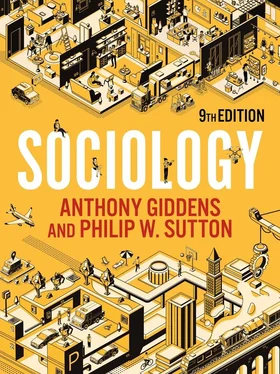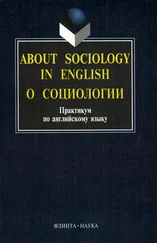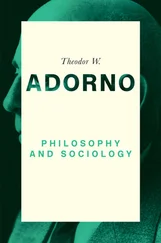Skocpol’s explanation is that all three revolutions occurred in predominantly agrarian societies and were made possible only when the existing state structures (administrative and military) were breaking down as they came under intense competitive pressure from other states. In this context, it was peasant revolts and mass mobilizations that brought about social revolutions in France, China and Russia. Thus Skocpol argued against the widespread notion that peasants were not a ‘revolutionary class’. Some similarities with other revolutions in Vietnam, Cuba, Mexico and Yugoslavia can also be seen. Skocpol’s causal explanation focuses on state structures. As these began to break down, a power vacuum was created and states lost their legitimacy, enabling revolutionary forces to take power.
Skocpol’s research makes use of the ‘logic of scientific experiment’ for comparative studies outlined by John Stuart Mill in the mid-nineteenth century. She adopts Mill’s ‘method of similarity’, taking three similar events (revolutions) in very different national contexts. This allows her to look for key similarities across the three cases which can be identified as independent variables and thus help to explain the causes of political revolutions.
Some of Skocpol’s critics have raised questions about the structural argument of her thesis. This, they say, leaves little room for active agency on the part of people. How did peasant groups revolt? Did leaders not play a part in the revolutions? Could things have turned out differently if individual actors and groups had chosen alternative courses of action? Are individuals so powerless to influence change in the face of structural pressures?
A further criticism is of Skocpol’s notion of ‘cause’ in this context. Some contend that what her argument amounts to is really a set of sophisticated generalizations in relation to the cases she studied. And, though such generalizations work quite well for these specific cases, this is not the same thing as a general causal theory of social revolutions. Does the thesis hold for, say, the Iranian Revolution of 1979, the ‘Velvet Revolution’ in (former) Czechoslovakia in 1989, or the uprisings in the Middle East and North Africa during the ‘Arab Spring’ which spread from Tunisia in 2010–11? So, critics say, despite setting out to discover the underlying causes and nature of social revolutions, in the end, Skocpol’s study showed that each revolution has to be studied in its own right.
Contemporary significance
Skocpol’s study has become a modern classic for two reasons. First, it developed a powerful causal explanation of revolutionary change which emphasized the underlying social structural conditions of revolution. Such a strong central thesis was, nevertheless, underpinned by very detailed analysis of primary and secondary documentary sources. Hence, Skocpol successfully demonstrated that comparative-historical sociology could combine the study of large-scale, long-term social change with the empirical investigation of historical events ‘on the ground’. In essence, she brought together the macro- and microsociological aspects into one theoretical framework. Second, Skocpol made a very significant contribution to our understanding of revolutions. She showed that there are enough similarities across different revolutions to warrant pursuing general theories of social change. In this way, her thesis helped to bridge the gap between mainstream historical studies and the sociology of revolutions.
For some, visual sociology has the potential to enhance and expand sociological work in every specialist field, all of which involve some forms of visual data and sources of evidence. As Pauwels (2015: 5) puts it: ‘the ultimate goal of a visual social science might lie beyond the (mere) ambition to become a well-established and legitimate way of doing social research, by striving to change social scientists’ ways of looking at and thinking about society in a more profound way.’ In time, sociologists may well become experts in the collection and use of existing visual data, producing their own visual materials and communicating their findings in more visual ways.
The emergence of the internet and worldwide web presents new opportunities and challenges for sociologists. One opportunity is simply gaining access to an unrivalled range of information from across the globe with just a few clicks. The internet has become an invaluable research tool that can be used to gain access to articles, books, research reports, government documents, parliamentary debates (live or in document form), historical documents, archives and lots, lots more. In this way, academic exchanges are speeded up and local research reaches the international scholarly community with ease. As Selwyn (2019: vi) notes, ‘This abundance of online information reflects the fast-changing nature of scholarship and knowledge.’
There is a danger that this accessibility of information may be mistaken for accuracy of information. Students and researchers have to be constantly critical and ask the same questions they would of all other sources. Who produced it? How was it produced? Has it been subject to review by other academics? How credible is the source? Does the source have any direct interest in the information that might lead to bias? Many lecturers are engaged in teaching students the skills required to be able to make effective use of online sources (Ó Dochartaigh 2009). Researchers can use apps, email, Skype, online questionnaires and webcam interviews as part of their research projects, while the huge number of online communities offers the possibility of doing research in much the same way as would happen in conventional social groups and communities (Hewson et al. 2002). Chatrooms, forums and other social media are used by specific interest groups to organize online and as a result may present the best or only way into a particular subject.
The rapid spread of digital technologies has stimulated debates about how the practice of sociology is affected in the digital age, and these debates are part of the recent sub-field known as digital sociology. Digital devices and technologies have become embedded in people’s ordinary lifestyles, as they engage with online news feeds, banking, social media, search engines, gaming, video streaming and much more. Alongside these are smart TVs, refrigerators and white goods, home lighting and electronics, sensors and programmers, which collectively have come to be labelled the emerging ‘Internet of Things’. All of which means that social life has become ‘profoundly digital and digitized’ and is lived in and through digital systems (Selwyn 2019: 2). One key development is that, through digitization, very large quantities of data are now routinely collected, including text messages and call records, search engine selections, and credit card transactions, along with GPS location data, which records not only what people do but where they do it.
For some, this mass of digital data allows sociologists to find out much more about social life and social relations than ever before and to avoid the charge that sociology is out of touch with the new reality (Marres 2017). And, rather than relying on data generated via the somewhat artificial methods of surveys, interviews and focus groups, digital data are said to be ‘naturally occurring’, part of the millions of interactions and exchanges between people as they go about their daily lives. Savage and Burrows (2007) argue that exploring this data allows sociologists to move towards describing the complexities of social life in fine-grained detail as never before, perhaps marking a new way of doing sociology.
Читать дальше












